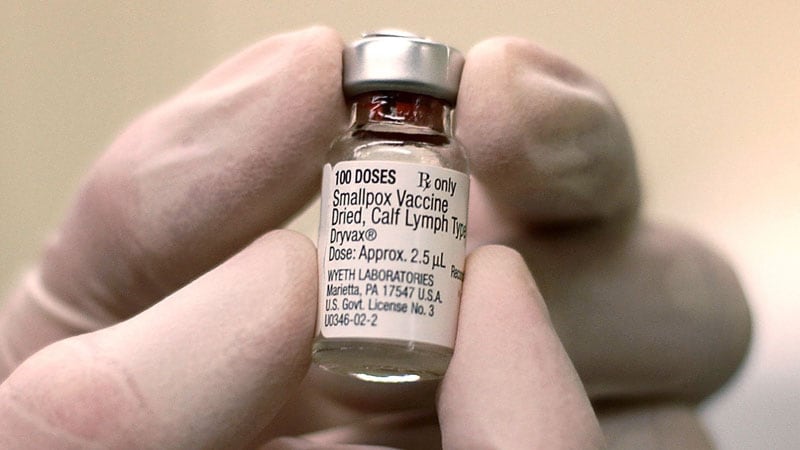Efficacy of Reduced-Dose Vaccines for HIV Patients Against Mpox
Core Concepts
Reduced-dose vaccines protect HIV patients against Mpox.
Abstract
The content discusses the efficacy of reduced-dose vaccines in protecting patients with HIV against Mpox. It highlights the need for booster doses in patients with low lymphocyte counts and compares the intradermal and subcutaneous vaccination routes. The study emphasizes the importance of further research to evaluate responses to the vaccine and the necessity of booster doses for patients with HIV who do not exhibit an immune response.
Key Highlights:
Smallpox vaccine induces immunity against mpox in HIV patients.
JYNNEOS vaccine shows protective cross-reactivity against orthopoxviruses.
Intradermal dose-saving vaccination route is preferable for HIV patients.
Patients with low CD4+ T-lymphocyte counts may require booster doses.
Further research is needed to evaluate vaccine responses in HIV patients.
Reduced-Dose Vaccines Protect Patients With HIV Against Mpox
Stats
Patients with lymphocyte counts below 500 cells/mm3 require booster doses.
JYNNEOS vaccine has protective cross-reactivity against orthopoxviruses.
Intradermal dose-saving vaccination route is preferable for HIV patients.
Patients in the loCD4 group may require at least one booster for an efficient response.
The intradermal route with one-fifth of the standard subcutaneous dose has a better immune response.
Quotes
"The second point is that the intradermal route with one-fifth of the standard subcutaneous dose has a better immune response than the standard subcutaneous route."
"It needs to be validated with many more subjects, of course, but in some way, it reinforced our confidence in the strategy of health authorities to promote intradermal vaccination."
"The main message should be that for patients with HIV infection who do not have an immune response, the vaccine response is incomplete, and they need booster doses as well as monitoring of the vaccine immune response."
Key Insights Distilled From
by Roxana at www.medscape.com 02-26-2024
https://www.medscape.com/viewarticle/reduced-dose-vaccines-protect-patients-hiv-against-mpox-2024a10003pq
Deeper Inquiries
How can the findings of this study impact vaccination strategies for HIV patients in the future?
The findings of this study can significantly impact vaccination strategies for HIV patients in the future by highlighting the importance of tailored approaches for this specific population. The study suggests that HIV patients may require booster doses and different administration routes to generate an efficient immune response to vaccines. Future vaccination strategies may need to consider these factors to ensure optimal protection for HIV patients against diseases like mpox. Additionally, the study emphasizes the effectiveness of reduced-dose vaccines, particularly through intradermal administration, which can be crucial during vaccine shortages or in situations where maximizing vaccine supply is essential.
What are the potential drawbacks or limitations of using reduced-dose vaccines for HIV patients?
While reduced-dose vaccines, especially through intradermal administration, have shown promise in generating immune responses in HIV patients, there are potential drawbacks and limitations to consider. One limitation is the need for additional booster doses for patients with lower CD4+ T-lymphocyte counts, which can complicate vaccination schedules and increase healthcare costs. Reduced-dose vaccines may also raise concerns about the durability of immune responses over time and the potential need for more frequent revaccination. Furthermore, the study's small sample size and limited control groups may limit the generalizability of the findings, highlighting the importance of further research with larger cohorts to validate the efficacy and safety of reduced-dose vaccines for HIV patients.
How can the development of T-cell responses in HIV patients influence future vaccine research and development?
The development of T-cell responses in HIV patients, as demonstrated in this study, can have significant implications for future vaccine research and development. Understanding how vaccines induce specific T-cell responses in HIV patients with varying CD4+ T-lymphocyte counts can guide the design of vaccines that are more effective in immunocompromised populations. This knowledge can help researchers identify immune correlates of protection and optimize vaccine formulations to enhance T-cell responses in HIV patients. Additionally, the study underscores the importance of considering different administration routes and dosing strategies to improve vaccine efficacy in vulnerable populations. Overall, the development of T-cell responses in HIV patients can inform the development of more targeted and efficient vaccines for this at-risk group.
0
